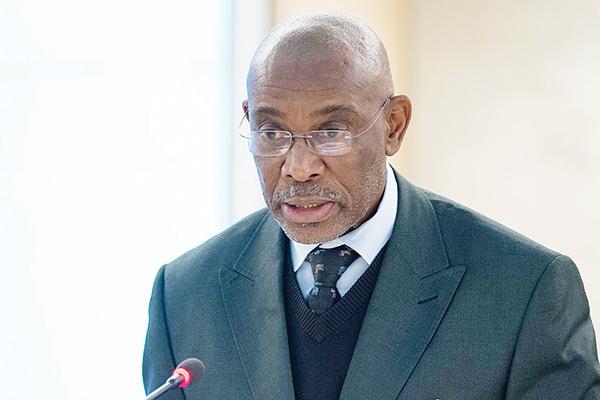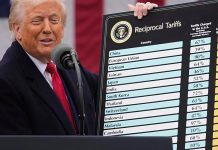Africa-Press – Lesotho. Prominent human rights lawyer and former Attorney General, Advocate Haae Phoofolo, who has championed the cause for abolition of capital punishment has come out in support of the execution of convicted criminals to discourage the scourge of murder in the country.
Phoofolo was speaking to Public Eye in an interview this week, reacting to the escalating incidents of murders of both ordinary citizens and members of the uniformed forces.
Between January 1 to December 31, 2020, the Lesotho Mounted Police Service (LMPS) recorded 898 murders in the country, according to the latest crime statistics report published by the Bureau of Statistics (BOS).
This brings the daily average to 2.5 murders, at the rate of 44.7 murders per 100 000 people based on the 2016 population census. The international homicide average rate is seven per 100 000, which puts Lesotho in the top six of the most murderous countries in the world.
According to the ranking of the most dangerous countries in the world in 2021, by murder rate per 100 000 inhabitants, El Salvador was the most dangerous country worldwide, with the murder rate of 82.84 per 100 000.
The ranking was published by Statista, a German company specialising in market and consumer data, last month. In July last year, it was reported that South Africa had a rate of 35.8 murders per 100 000 people.
Commentators who spoke to Public Eye recently said the alarming murder rate was probably the consequence of a combination of factors such as declining police performance and high levels of police corruption. And despite these statistics, between 1992 and 1998 only six death sentences had been handed down by the High Court for murder.
In the case of Phumo v Rex, CA/CRI/7/90 the Court of Appeal commuted the death sentence to seven years’ imprisonment; in Rex v Sosolo, CRI/T/13/90 the Court of Appeal commuted the death sentence to 15 years, while in Sekhobe Letsie and Another v Rex, CA/CRI/3 and 4/91 the death sentence was commuted to life in respect of the second accused.
The High Court overturned the death sentence on Nkalimeng Mothobi, who had been in custody since 1993. He was originally one of four accused, three of whom were tried separately in 1996 and sentenced to death for the same murder.
Two had their sentences reduced on appeal and the third was acquitted and released in 1997. There have also been no executions since 1996; while there is presently no one on death row because of the rigorous application of extenuating circumstances by the Court of Appeal.
Death ordered by the courts of law in Lesotho is by hanging in terms of Section 298 of the Criminal Procedure and Evidence Act. Section 5 of the Constitution permits the infliction of any punishment authorized by law, including the death penalty.
In civilian courts murder and treason are punishable by the death penalty in terms of Section 297 of the Criminal Procedure and Evidence Act 1981 (CP&E), as well as rape where the accused is to their knowledge infected with HIV, in terms of Section 32 (vii) of the Sexual Offences Act 3 of 2003.
However, the death penalty can only be imposed where the court finds that there are no extenuating circumstances. Supporting his new stance Advocate Phoofolo notes, however, that the decision to impose the death penalty is always not an easy one, articulating that factors surrounding a murder case have to be considered.
He singled out, among others, remorse and provocation. Phoofolo said that for a judge to sentence an accused person to death, the case has to go before the High Court and the Court of Appeal, and has to be presented before the King – who is vested with authority to allow an execution.
He, however, noted that since the law providing for the death penalty was enacted in Lesotho, it has only been applied once in 1994; arguing that this could be among the reasons leading to an increase in murder cases the country.
Phoofolo revealed that being part of United Nations, Lesotho has been discouraged from applying the death penalty as it is considered inhumane and degrading.
Lesotho is a signatory to the United Nations Universal Declaration of Human Rights, the African Charter on Human and People’s Rights, and in particular the International Covenant on Civil and Political Rights, all of which provide for the sanctity of the right to life.
These international instruments recognise, however, that signatory states thereto may impose the death penalty. Article 3 of the International Covenant on Civil and Political Rights provides, for instance, that a state that has not abolished the death penalty may impose the death penalty but only pursuant to a final judgment rendered by a competent court.
It is only the Second Optional Protocol to the International Covenant on Civil and Political Rights that enjoins all the state parties to take all the necessary measures to abolish the death penalty.
Lesotho is not a signatory to this Protocol and even if it were it would need to pass enabling local legislation to bring it into effect. This would, in turn, necessitate amending local legislation, including the Constitution, to abolish the death penalty.
Section 5 of the Constitution provides that every human being has an inherent right to life and that no one shall be arbitrarily deprived of his life, but then adds that no one shall be regarded as having been arbitrarily deprived of his life where he dies in execution of the death penalty pursuant to a sentence imposed by a court of competent jurisdiction.
The death penalty, however, cannot be carried out in respect of a person below 18 years of age or a pregnant woman in terms of Section 297 (b) and 299 of the CP&E respectively.
Phoofolo continued, though, that it is unwise for political parties to publicly take a stance on the issue of the death penalty, reacting to the recent Democratic Congress (DC) declaration that when they come to power they will ensure that death penalty is resuscitated.
He argued that this statement was likely to send out the wrong message that political parties have a say on issues that concern the judiciary. “The death penalty is a legal issue; it concerns the judiciary sector not any political party.
The decision for its implementation can only be made by courts of law,” he said. This come after last week the DC called for the application of death penalty for murder convictions. The DC wants for the death penalty to be imposed with or without a presiding officer’s opinion, as long as a murder has been committed.
While presenting Lesotho’s report for review by the United Nations Human Rights Working Group on the universal Periodic Review – 35th Session, in Geneva in January 2020 then law, constitutional affairs and human rights minister, Habofanoe Lehana, indicated that since the death penalty was contained in the constitution as a limitation to the right to life, its abolition had been tabled for national debate as part of the national reform process.
“Since the death penalty was still retained in the Constitution of Lesotho, ratification of the Second Optional Protocol to the ICCPR will depend on the outcome of the national reforms in relation to death penalty.
For More News And Analysis About Lesotho Follow Africa-Press






